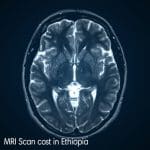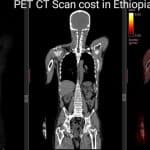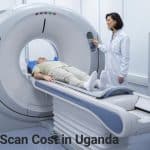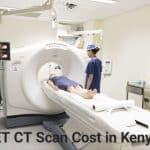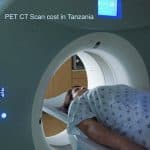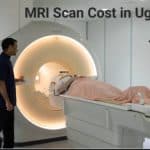Types of CT Scans –
CT scans are like superheroes in the world of medical imaging, helping doctors see inside our bodies to catch potential issues. Imagine them as different superheroes with unique powers. Head, abdominal, and chest scans focus on specific areas, unveiling secrets about our brains, organs, and lungs. There are even special scans for bones, joints, and blood vessels. It’s like having a team of heroes each assigned to tackle a specific mission.
- Head CT Scan:
- Purpose: To examine the brain for conditions like head injuries, tumors, or bleeding.
- Associated Diseases: Head trauma, headaches, neurological disorders.
- Cost Range: $150 – $250.
- Abdominal CT Scan:
- Purpose: Evaluates the organs in the abdomen, detecting issues such as tumors or infections.
- Associated Diseases: Abdominal pain, digestive issues, organ abnormalities.
- Cost Range: $200 – $300.
- Chest CT Scan:
- Purpose: Images the chest for lung and cardiovascular conditions.
- Associated Diseases: Respiratory issues, lung cancer, cardiovascular abnormalities.
- Cost Range: $180 – $280.
- Pelvic CT Scan:
- Purpose: Examines the pelvic area for conditions related to reproductive organs or urinary system.
- Associated Diseases: Gynecological issues, urinary tract problems.
- Cost Range: $220 – $320.
- Contrast-Enhanced CT Scan:
- Purpose: Involves a contrast dye to enhance visualization of blood vessels and soft tissues.
- Associated Diseases: Used in various scans to improve clarity, often for detailed vascular imaging.
- Cost Range: $250 – $400.
- Spine CT Scan:
- Purpose: Examines the spinal column for conditions such as herniated discs or spinal fractures.
- Associated Diseases: Back pain, spinal injuries.
- Cost Range: $200 – $350.
- Cardiac CT Angiography:
- Purpose: Evaluates the heart and blood vessels for coronary artery disease.
- Associated Diseases: Coronary artery disease, heart conditions.
- Cost Range: $300 – $500.
- Musculoskeletal CT Scan:
- Purpose: Focuses on bones and joints, detecting fractures, arthritis, or tumors.
- Associated Diseases: Bone injuries, joint disorders.
- Cost Range: $250 – $400.
- Virtual Colonoscopy:
- Purpose: Examines the colon for polyps or signs of colorectal cancer.
- Associated Diseases: Colorectal cancer screening.
- Cost Range: $300 – $450.
- Whole-Body CT Scan:
- Purpose: Provides an overview of the entire body for detecting widespread conditions or abnormalities.
- Associated Diseases: Used in cancer staging, trauma assessment.
- Cost Range: $400 – $600.
- Sinus CT Scan:
- Purpose: Examines the sinuses for issues like sinusitis or nasal polyps.
- Associated Diseases: Sinus infections, nasal conditions.
- Cost Range: $180 – $280.
- Neck CT Scan:
- Purpose: Focuses on the neck region, detecting abnormalities in the thyroid or lymph nodes.
- Associated Diseases: Thyroid issues, lymph node enlargement.
- Cost Range: $200 – $300.
- Angiography CT Scan:
- Purpose: Provides detailed images of blood vessels, aiding in vascular studies.
- Associated Diseases: Vascular conditions, aneurysms.
- Cost Range: $300 – $500.
- Cranial CT Angiography:
- Purpose: Examines blood vessels in the brain for aneurysms or other vascular issues.
- Associated Diseases: Brain aneurysms, vascular abnormalities.
- Cost Range: $250 – $400.
- Bone Density CT Scan (DEXA Scan):
- Purpose: Measures bone mineral density to assess osteoporosis risk.
- Associated Diseases: Osteoporosis.
- Cost Range: $150 – $250.
- Adrenal Gland CT Scan:
- Purpose: Focuses on the adrenal glands, detecting tumors or abnormalities.
- Associated Diseases: Adrenal tumors, hormonal imbalances.
- Cost Range: $220 – $320.
- Joint CT Scan (Arthrography):
- Purpose: Evaluates joints by injecting a contrast material for enhanced imaging.
- Associated Diseases: Joint injuries, arthritis.
- Cost Range: $250 – $400.
- Liver CT Scan:
- Purpose: Examines the liver for conditions like cirrhosis, tumors, or infections.
- Associated Diseases: Liver disease, hepatitis.
- Cost Range: $230 – $330.
- Pancreas CT Scan:
- Purpose: Focuses on the pancreas, detecting tumors or inflammation.
- Associated Diseases: Pancreatic cancer, pancreatitis.
- Cost Range: $240 – $350.
- Urography CT Scan:
- Purpose: Evaluates the urinary tract using contrast for detailed imaging.
- Associated Diseases: Kidney stones, urinary tract infections.
- Cost Range: $270 – $400.


